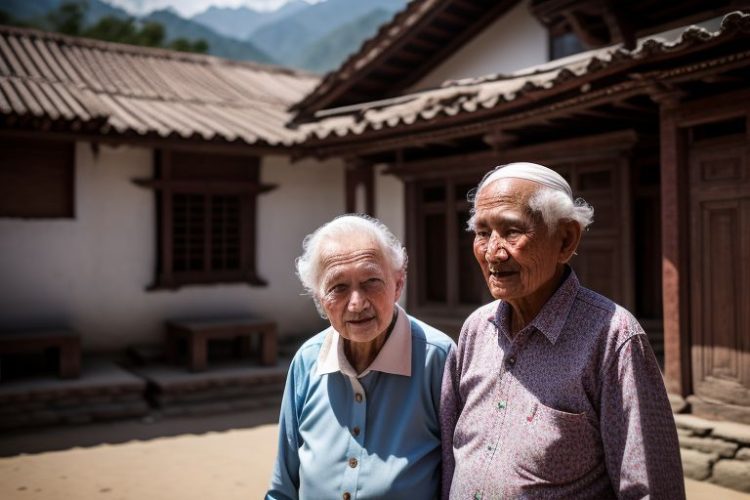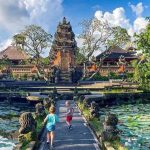Introduction
Nepal exudes an amalgamation of stunning Himalayan landscapes, rich heritage, and warm-hearted people that make it sure to emerge as a dream destination for those considering retirement abroad. For a British pensioner who is driven by the urge to embrace a new chapter of his life in serene and captivating surroundings, Nepal offers several alluring opportunities combined with unique challenges. This detailed guide contemplates the question of whether retirement in Nepal is feasible and examines the practicalities of moving, the kind of lifestyle you might enjoy, and exactly how to go about making Nepal your retirement home.
The Process for a Retirement Visa Explained
One of the very first considerations that people thinking about retiring to Nepal have to make regards the visa and residency process. Unlike some countries, Nepal does not have a dedicated visa category for retirees. Nevertheless, there are several routes through which British pensioners can acquire residency.
The most common route is the long-term tourist visa, allowing extended stays but requiring periodic renewals. To stay in Nepal for long periods, though, most retirees apply for a non-tourist visa or residency permit, which means going through all the immigration laws and requirements of Nepal. This kind of permit is usually issued for having investments, business ownership, and such.
Desirable is consultation with a local immigration expert or legal adviser in Nepal. Such a person would understand the suitable visa options and ensure that all the required legal formalities are met. This is important in monitoring any changes in immigration policies or regulations. When changed, it may hinder one from continuing to stay in Nepal.
Cost of Living in Nepal
Specifically, one of the major factors of attraction for retirement to Nepal is its low cost of living compared to the West. What this translates to for British pensioners is that their savings toward retirement might go further in Nepal than anywhere else to live well without the high expenses.
The cases of housing costs in Nepal can be very cheap, especially outside Kathmandu and the other larger cities. For example, rent for a modest apartment in Pokhara or Bhaktapur would be very much lower than in London or any of the larger British cities. Even in Kathmandu, where the cost of living is somewhat higher, there are also various reasonable options available for retirees.
Daily expenses, like food, transport, and healthcare, are relatively inexpensive in Nepal. The markets offer a fresh supply of produce, and places to eat are available at reasonable prices. Public transport is inexpensive and reliable. These have to be balanced with other possible extra costs, such as health insurance and the occasional return to the UK or other countries.
Healthcare and Medical Facilities
Anyone considering retiring abroad must be concerned about health matters. There are medical facilities in Nepal ranging from local clinic care to the more sophisticated hospitals in the larger cities. Although the cost of healthcare is relatively inexpensive compared with the UK, there are variations in both quality and availability.
There are quite a good number of good hospitals and medical facilities in urban areas like Kathmandu that service expatriates. However, specialized treatments or complex medical procedures may require retirees to travel to nearby countries that are well-endowed with superior healthcare systems.
British pensioners should keep in mind that they can invest in good all-inclusive health insurance to cover all routine medical requirements, including emergency cases. It is good to learn about health care locally and then establish relations with a good doctor or clinic shortly after arrival.
Cultural Adaptation and Lifestyle
Nepal provides a unique cultural experience, enriching and challenging at the same time. The country is full of great opportunities to be immersed in deep culture through its different traditions, festivals, and way of life. In terms of spirituality, with so many temples and monasteries, Nepal is conducive to any environment for meditation and reflection.
The pace of life is generally slow compared to that in Western countries, which again may be a refreshing change for the retiree looking for a slower pace of life. Adjusting to local customs, language barriers, and different social norms will all take some time.
Nepali is the mother tongue, although English is understood and spoken by most tourist-related service providers and most of the expatriate community; knowing some Nepali can really help in day-to-day activities. Besides, being able to adjust to the local environments and cultures easily, it is always advised to learn about the basics of the local customs and traditions.
Accommodation and Living Arrangements
Accommodation is the prime consideration for retiring in Nepal and looking forward to a comfortable, easy life. Many retiring people opt for apartments or small houses in Kathmandu, Pokhara, or the more laid-back towns in the Kathmandu Valley.
While renting an apartment or a house is pretty easy, it is recommended to find a local real estate agent or consultant who can understand your needs as a foreigner. This would then help you in finding suitable housing in line with your preferences and budget.
There are also expat communities that have been specifically established in Nepal for retirees seeking more of a community environment. Many of these have regular social functions and also provide levels of support for new arrivals, settling, and establishing an intermediary network of friends.
Final Thoughts and Practical Considerations
Retirement in Nepal involves a lot of planning and many practical considerations to be aware of. From the new adventure that awaits—managing visa requirements and health care choices—to adjusting to a different culture and way of life, the transition can be both exciting and demanding.
A visit to Nepal is a must before finally deciding to retire there for the exploration of different regions, assessment of living conditions, and examination of whether the country fits into your retirement goals and expectations. Maintaining contacts with local expatriate communities and taking advice from persons who actually made the move is very important in terms of insight and support.
Most of the benefits that make retiring to Nepal so alluring to many—low cost of living, rich cultural experiences, and just incredibly beautiful landscapes—also require careful planning and adjustment. Indeed, knowing the system of visas, the cost of living, health facilities, and cultural identity, British pensioners are more likely to arrive at an informed decision toward a fulfilling retirement in this beautiful Himalayan country.
Be it the serene landscapes of Nepal, vibrant traditions, or the promise of a simpler lifestyle, this is an adventure capable of bringing a lot of excitement and rewards to retirement. All that is needed for the process of retiring to Nepal to be a wonderful new chapter in your life’s journey is proper preparation and a sense of adventure.
Related posts:

Ray Brocklesby, the site owner, is a Brit who now lives in the Philippines. He is retired and lives with his wife Weng, Daughter Kristelle, nephews, Harvey and Boknoy, and mother-in-law. Ray also has a son and daughter living in the UK, and a son in New Zealand.













